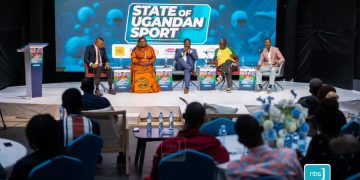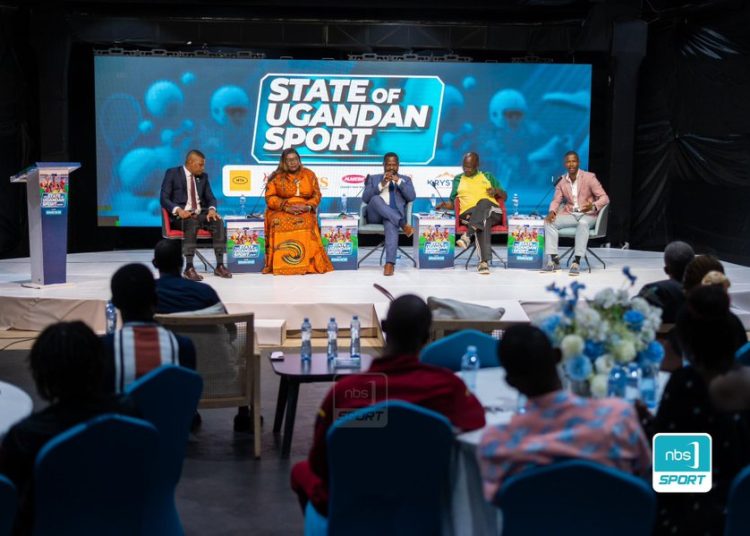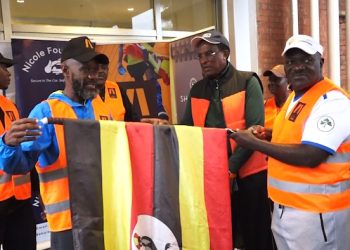When Andrew Kabuura took over as Head of Sports Broadcast at Next Media, he envisioned a platform where Uganda’s sports stakeholders could confront hard truths and chart a new path forward.
“The vision was simple but powerful: bring everyone to the table,” Kabuura said at the launch of the State of Ugandan Sport Symposium on May 9.
“Only when all stakeholders are in the room can we have the real, forward-thinking conversations that move Ugandan sport forward.”
That vision became reality this week as NBS Sport hosted the groundbreaking State of Ugandan Sport Symposium, a two-day colloquy of candid discussions, heated debates, and bold proposals that left attendees demanding another session within six months rather than waiting a year.
Held on June 17-18 at Next Media Park, the symposium brought together athletes, federation heads, sponsors, policymakers, and the media under one roof to dissect Uganda’s struggling sports ecosystem.
By the closing session, it was clear that the symposium had achieved far more than just talk. It had exposed deep fractures in the system while igniting a rare sense of collective urgency.
Day One: Policy Gaps and Broken Promises
The first day set the tone with brutal honesty. Coaches admitted they didn’t know Uganda had a Sports Act.
Federation officials clashed over accountability. Investors revealed pouring billions into clubs with no returns; yet vowed to keep supporting the game.
National Council of Sports (NCS) General Secretary Dr. Bernard Ogwel tried to reassure doubters about Uganda’s readiness to host CHAN 2024 and AFCON 2027, but skepticism lingered.
Meanwhile, former athletes like Hellen Buteme demanded better pathways for talent development, warning that Uganda’s future stars were being wasted at the grassroots.
Day Two: Sponsors Demand Change, Leaders Trade Blows
If Day One identified problems, Day Two offered solutions. And fireworks. Infact, in my view, it was even more interesting and engaging.
In the first afternoon panel, top sponsors, including MTN Uganda, Nile Breweries, and Plascon, called out federations, associations and clubs to be more organised in order to attract more sponsorships.
Federations were also called upon to be accountable for the money they’re given, in order for sports in the country to flourish.
However, sponsors were not spared either. Former Next Media Deputy CEO, and now CEO of JKA Academy, Joe Kigozi noted that while many clubs and federations often chase after sponsors, this approach is misguided.
He argued that it should be sponsors seeking out sports properties, not the other way around, but acknowledged that the current lack of a compelling product makes that difficult.
That was during the final panel, moderated by Andrew Kabuura, which turned into a fiery debate.
Joe Kigozi argued that there should be a sports ministry independent from the Ministry of Education, while football administrator Kennedy Mutenyo said that the country is not yet ready for that.
IOC member William Blick delivered a keynote message: “We need to create moments that keep fans engaged beyond the final whistle.”
But Mutenyo’s damning verdict that Ugandan sport is deteriorating hung over the room like a dark cloud. He even painted a picture where the positives in the state Ugandan Sport are not even at 9%.
The Way Forward: More Than Just Talk?
Despite the grim assessments, the symposium ended on a hopeful note. Attendees left with actionable ideas; better governance, smarter sponsorship models, and a push to professionalise athlete welfare.
For NBS Sport, the symposium was more than a success, but the spark Uganda’s sports sector desperately needed.
The question now is whether the momentum will lead to real change or fade into another forgotten dialogue.





























